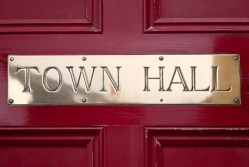 Businesses based in England want more decisions to be taken in town halls rather than from Whitehall, according to a new survey.
Businesses based in England want more decisions to be taken in town halls rather than from Whitehall, according to a new survey.
The British Chambers of Commerce (BCC) polled more than 1,300 English firms and found that 42% believe greater devolution to their local area would have a positive impact on their business; while a quarter (26%) think it would have negative consequences.
The majority of respondents said that the greatest positive impact from devolution would be seen in transport investment (67%) and apprenticeship funding and delivery (58%).
However, businesspeople remain sceptical when it comes to tax-setting powers being handed over to councils.
Nearly a third (33%) of English businesses would expect their tax bills to rise if set locally, versus 18% who expect to pay less tax. Micro, small and medium-sized businesses were more likely to say they would expect to pay additional tax, compared to large organisations. A third of businesses (34%) support paying higher taxes if the money is retained and spent locally.
The majority of businesses identified simplifying local government (58%) and giving ratepayers a vote on local economic strategies (51%) as the most effective methods of increasing the accountability and effectiveness of local government.
John Longworth, BCC director general, said: "Businesses don't support devolution for devolution’s sake. However, they support greater local-decision-making if it means greater efficiency, greater accountability and better results.
"As various parties' election manifestos have acknowledged, boosting the growth prospects of England's cities and counties must be a priority for the next government. Yet devolution must work for business if local areas are to see sustainable growth and job creation for years to come."
The BCC's Business Manifesto is calling for the incoming government to guarantee a business ratepayers' vote on local economic strategy, including a vote on any proposed changes to local business taxation.
